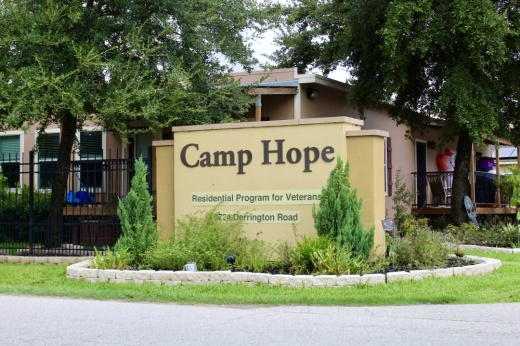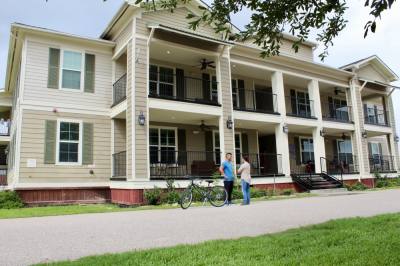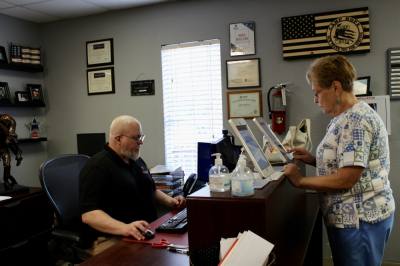“It takes more than a bumper sticker on the back of a car to support the troops,” Maulsby said.

Camp Hope’s core foundation started in 2009 with support groups for veterans across the nation to support and learn from each other's experiences with PTSD.
Today, Camp Hope provides veterans with the tools needed to cope with their trauma by offering housing, clinical therapy and support.
“We provide every possible thing they need while they are here, including helping with their VA benefits, doctor's appointments, legal issues, or any kind of medical or dental type issues, as well as doing everything we can to support their families,” Maulsby said.
Maulsby said Camp Hope has an entire team providing support and services to veteran families.
As of early October, Camp Hope had 120 veterans living on-site. Maulsby said it costs about $145 a day per resident to run its daily operations, and the organization runs on donations.

Veterans residing at Camp Hope are typically in the program for six to 12 months. When they initiate the program, veterans are expected to enter a blackout phase for 30 days. During this time, they are not allowed access to any electronic devices and are shut out from the distractions of the outside world.
During the first 30 days, veterans have the opportunity to settle in and stabilize. Maulsby said a majority of the time, veterans are attempting to escape situations in the outside world and come to Camp Hope for help as well as safety.
Maulsby said military combat veterans coping with PTSD struggle with triggers daily and require assistance to help rewire their brain.
“Every trash can on the side of the road might be a threat,” Maulsby said. "A child approaching them might have a bomb strapped to the chest. Every possible thing that they see is a potential threat not only to them, but to the ones standing beside them."
From the start, veterans are placed in support groups where they receive peer-to-peer support and therapy sessions within 72 hours.
After the initial 30 days, veterans are introduced into the core of the program, understanding what PTSD is and how it has affected them.
Put in perspective
Maulsby said some symptoms seen in veterans dealing with PTSD include hyper-anxiety and a strong aversion to crowds. This often results in self-medication. About 90% of veterans dealing with PTSD have some form of addiction, he said.
Veterans dealing with PTSD also tend to experience nightmares, shame and guilt, which can lead them to isolate to prevent hurting anyone. Maulsby said isolation is the number one symptom that leads to suicide within the veteran population.
“Many of our veterans come in and they've been homeless or they've been living in county jail. They come in with literally nothing. So we provide everything that they need,” Maulsby said.

“There's an education part that needs to take place to understand the mental health issue in our veteran population, and to not be afraid of it,” Maulsby said. "The stigma needs to go away. They're not bad people. PTSD is a mental health issue that we all have to be aware of."
Camp Hope
9724 Derrington Road, Houston
www.ptsdusa.org









